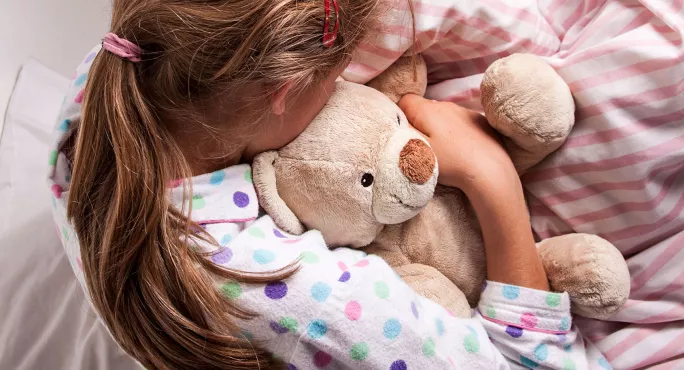- Home
- Teaching & Learning
- Early Years
- How to ensure children are emotionally ready for school
How to ensure children are emotionally ready for school

School readiness is a concept that has taken on new importance in the wake of the Covid-19 pandemic.
As young children approach the transition to Reception, much of the focus is on supporting them with their cognitive and physical development. And while these areas are unquestionably important, this can come at the expense of helping them to develop their emotional and social skills.
During transition meetings with teachers, I am regularly asked about a child’s ability to write their name, count to 10 or use the toilet, but rarely about their ability to self-regulate, resolve conflict or function independently. And a recent report from the Professional Association for Childcare and Early Years also found a significant focus on children’s educational attainment rather than a more social pedagogic approach.
Yet we know that when children are confident, compassionate and emotionally intelligent, they can truly flourish as they move along their educational journey.
So what can those of us who work in the early years do to nurture emotional resilience as part of a more holistic approach to school readiness?
School readiness: developing emotional resilience
Offer open-ended creativity
We know that creative play is paramount for children’s development, and so we must be careful not to limit this in order to make time for “learning”. When creating Mother’s Day or Father’s Day cards, for example, do we need to provide templates for children or can we allow them to engage in open-ended art so that they can create a unique keepsake to take home?
It may not look like a perfect flower or tie to us, but each child can feel proud of their unique creation.
- EYFS: How unusual objects can nurture curiosity and creativity
- Why our “family zone” is making more children school-ready
- Early years: How to use “in the moment planning”
Encourage kindness
We should pay attention to nurturing key skills like learning to be patient and waiting your turn. We can also encourage acts of kindness and acceptance through everyday interactions, as well as ensuring that we are good role models for this type of behaviour. Children are perceptive and will pick up on social cues from those around them.
Stories are great for promoting kindness and compassion. A particular favourite of mine is The Story of the Kindness Elves by Anna Ranson and Benjamin Byrne, which can be used as a prompt for discussions about the importance of looking after others.
Let mistakes happen
Fostering a safe environment for healthy risk taking and exploration can do a lot to develop independence. When children can confront challenges with optimism and persistence, their resilience grows and they are more likely to cope better with future adversity.
This means we should model embracing imperfection and being adaptable, so that children know that it is totally expected that they will make mistakes, and that they are only human.
Connect with nature
Being in nature is a great way of fostering gratitude, promoting awe and encouraging children to see potential and beauty in imperfection; all necessary skills to help them put their worries into perspective. Why not take them on a mindfulness walk, encouraging them to explore what they can see, hear, smell or touch?
Work with parents
Encouraging independence doesn’t mean teaching children that they shouldn’t ask for help, and it is important that they still know how to seek support if they need it. But parents and carers may need assistance in order to help their children to develop skills such as dressing, washing their hands, feeding themselves and seeking out items they need.
Therefore, working in partnership is crucial. Workshops can be a great tool to develop relationships and provide parents with the information and guidance they may need to best support their children. Simple activities such as allowing children to be involved in food preparation, laying the table for meal times and tidying away their toys can offer chances to develop independence while sending a message that they are capable of such tasks.
If we in the early years can work together to foster emotional resilience then children can transition to Reception with the tools required to succeed. Happy, confident and independent children are more likely to enjoy and achieve as they embark on their journey into school and beyond, so surely that is something that we should all prioritise.
Gemma Kirby is a lecturer in education at University College Birmingham, and a former nursery manager, Sendco and designated safeguarding lead
For the latest research, pedagogy and practical classroom advice delivered directly to your inbox every week, sign up to our Teaching Essentials newsletter
Keep reading for just £1 per month
You've reached your limit of free articles this month. Subscribe for £1 per month for three months and get:
- Unlimited access to all Tes magazine content
- Exclusive subscriber-only stories
- Award-winning email newsletters
topics in this article



